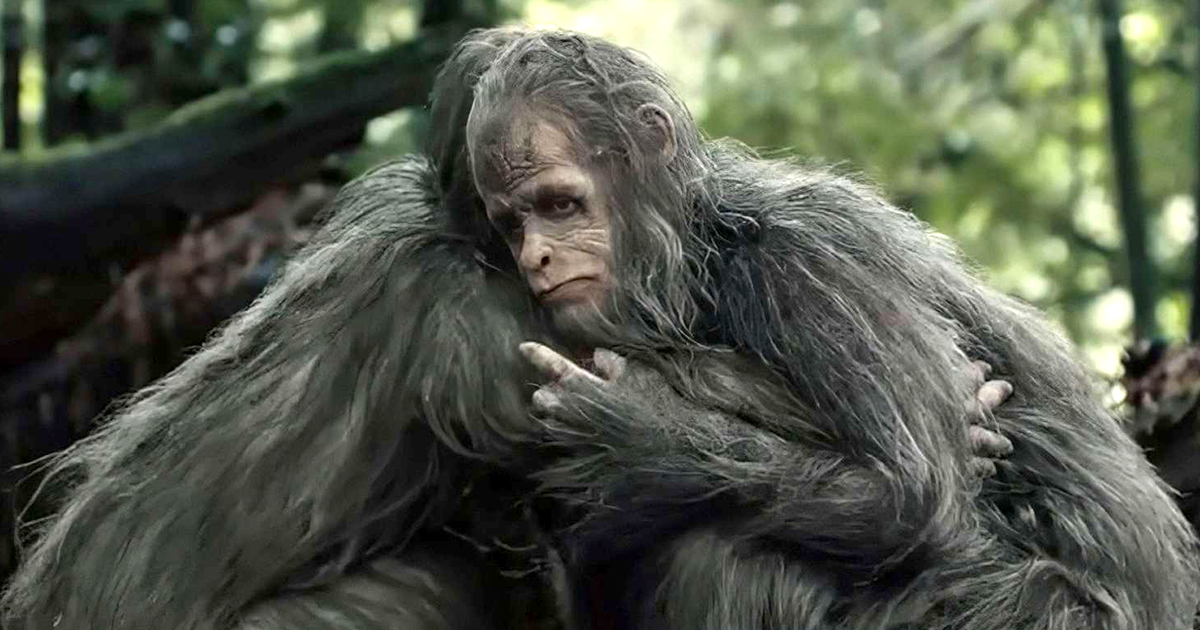[7]
Brothers David and Nathan Zellner co-direct this bizarre but oddly moving ‘year in the life’ film devoid of any English dialogue centered on a family of four sasquatches in a remote North American forest. There’s a father (Nathan Zellner) and a mother (Riley Keough), as well as another adult male (Jesse Eisenberg) and a male child (Christophe Zajac-Denek). We’re voyeurs on these creatures’ lives, watching them eat, sleep, build shelters, and have sex — all the basics of life. A story begins to take shape when the father is sexually rejected by the already-pregnant mother. He eats some bad mushrooms and tries to mate with a leopard. When the other three ‘squatches find his dead body, Eisenberg’s beta male steps up to lead them. But his character also succumbs to a tragic, early death, leaving the mother alone with the child and a baby on the way.
Partway through Sasquatch Sunset, the Zellner’s also pit their Bigfoot family against encroaching civilization. The family discovers abandoned campsites, deforestation equipment, and paved roads creeping into their environment. The film’s title comes to have a double-meaning — this particular family’s encounters with death, as well as their death as a species. Throughout the film the creatures periodically bang rhythmically on trees, waiting for a call back from somewhere in the wilderness — a rudimentary, “Hey, anybody else out there?” The call is never answered. Riley Keough gives the strongest performance in the film, especially in the later third when she’s the sole remaining adult. She conveys a sense of loneliness and impending doom through a considerable amount of prosthetic makeup. What is this poor, beleaguered creature to do? The Zellner’s take a tragicomic cue from Francois Truffaut in the film’s final shot, as Keough and Zajac-Denek face the camera and look into the lens a la The 300 Blows.
I love that Sasquatch Sunset tells a story and presents character arcs without any discernable language, but I would have preferred it be a deadly serious story. The comic aspects may draw in a wider audience who might be uncomfortable watching an experimental film, but they muddle the tone for me — not enough to dislike the film, but enough to keep it from potential greatness. It’s hard to take the film at all seriously after the sasquatches aggressively shit, piss, and squirt their breast milk in defiance all over the paved road (a hilarious scene on its own). The film also resorts to funny sights of the creatures’ genitalia a few too many times. Still, it’s a beautifully shot film, well-acted in parts, ambitious, and original — and that certainly counts for something.
Executive produced by Ari Aster (Hereditary, Midsommar).

